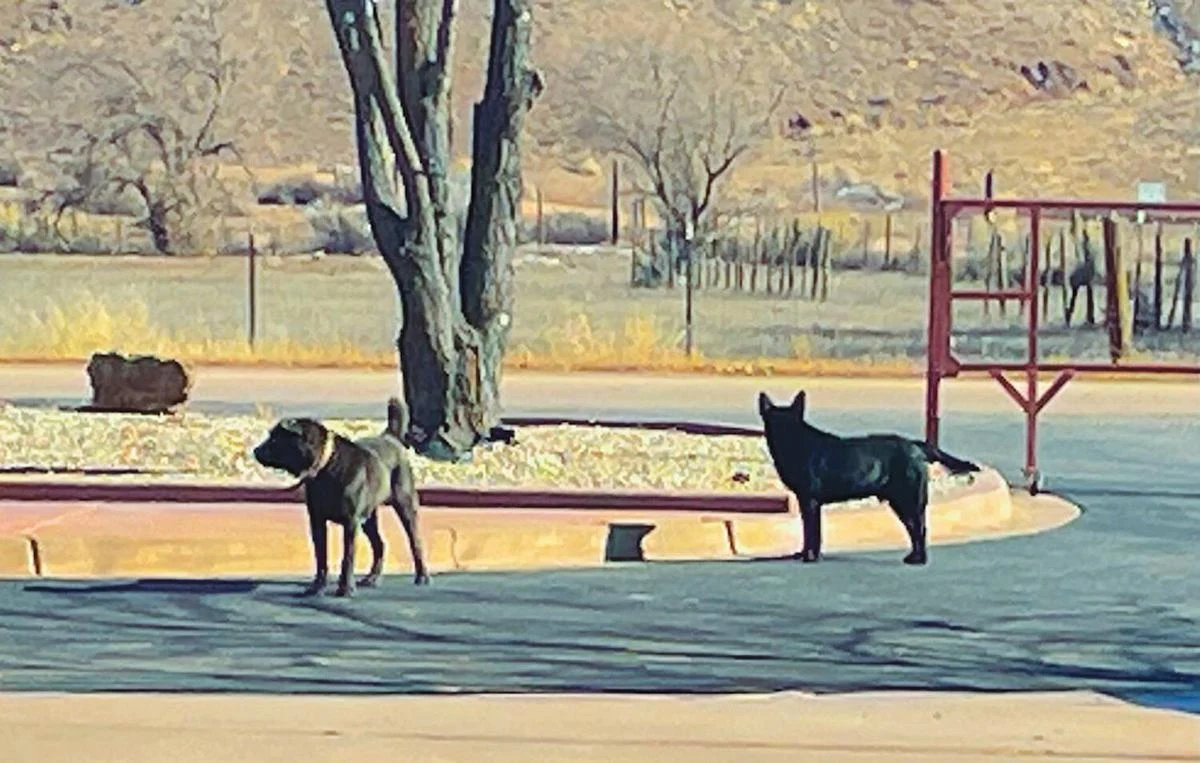
- Details
- By Levi Rickert
Studies show that Native children have the highest rate of dog bite injuries in the nation, and the highest rate of dog bite hospitalizations occur in rural Alaska and the Navajo Nation.
To combat this problem that occurs in rural tribal communities, U.S. Senators Sen. Lisa Murkowski (R-AK) and Senator Martin Heinrich (D-NM) introduced S.620, the Veterinary Services to Improve Public Health in Rural Communities Act. Joining in cosponsorting the legislation are Sen. Brian Schatz (D-HI), vice chairman of Senate Committee on Indian Affairs, and Sen. Gary Peters (D-MI).
The bill was first introduced in the previous Congress in June 2024 by Senator Lisa Murkowski (R-AK). It seeks to authorize the U.S. Department of Health and Human Services and the Indian Health Service (IHS) to provide veterinary services to Indian Tribes and Tribal organizations. These services, including spaying and neutering of domestic animals, aim to prevent and control severe, life-threatening zoonotic diseases— infections that spread between animals and people— in rural Tribal communities.
“The overpopulation of stray and abandoned dogs in Indian Country is a significant public health and safety issue,” Chairman Murkowski said. “My colleagues have been shocked to learn more than 250,0000 reservation dogs, as they’re often called, roam the Navajo Nation alone. And, according to IHS data, an average of 4,800 tribal members are hospitalized or receive outpatient care from dog bites each year. Some studies indicate that tribal areas experience a death rate from dog attacks that is 35 times higher than the rest of the nation. Even a non-fatal dog bite can transmit rabies, parasites, and other zoonotic diseases to humans and unvaccinated animals, leading to serious emotional, economic, and public health costs. I reintroduced this bill because Native children experience the highest rates of hospitalization from dog attacks than any other group in the nation, and we have an opportunity to change that. I thank my colleagues— Senator Heinrich, Schatz, and Peters – and the many advocates who recognize the importance of this legislation.”
“Communities across Indian Country are at higher risk of exposure to dangerous diseases that spread between animals and people, including rabies,” said Vice Chairman Schatz. “This bill will allow the Indian Health Service to provide critical veterinary services that lower the risk of outbreaks and improve public health.”
“Rabies outbreaks in animals are becoming more frequent across America, and Michigan’s rural and Tribal communities often lack readily available access to the veterinary care that can keep themselves and their animals protected,” said Senator Peters. “This bill would help provide important prevention services in some of the communities that need them most.”
The legislation has gained the support of Navajo Nation President Buu Nygren.
"The Navajo Nation strongly supports this legislation, which would provide critical resources to address veterinary care shortages in tribal communities. This bill would assist the Nation in reducing rabies-related incidents stemming from dog bites and improving overall animal health, which directly impacts public safety and community well-being. We appreciate Senator Murkowski’s leadership in reintroducing this bill and recognizing the urgent need for veterinary services in rural and tribal areas,” Nygren said.
The Veterinary Services to Improve Public Health in Rural Communities Act does the following:
Public Health Veterinary Services
- Amends the Indian Health Care Improvement Act to authorize IHS to provide veterinary services in areas where zoonotic diseases are endemic and the risk of transmission is elevated due to uncontrolled dog populations
- Enables Tribes to include these services in their 638 self-governance compacts with IHS
Implementation and Oversight
- Provides IHS with ability to assign or deploy veterinary officers from the U.S. Public Health Service Commissioned Corps to IHS service areas
- Requires coordination between IHS, the Centers for Disease Control and Prevention, and the Department of Agriculture (USDA)
- Mandates biennial congressional reporting on program outcomes
Program Enhancement
- Directs USDA to study wildlife oral rabies vaccine delivery in Arctic regions
- Designates IHS as a co-coordinator in the National One Health Framework
To view a copy of the bill, click here.
To view a one-page summary of the bill, click here.
Correction: A previous version of this article mistakenly said that Senators Schatz and Peters introuduced this bill. The Sen. Murkowski and Sen. Heinrich introduced the legislation.
More Stories Like This
Native News Weekly (August 25, 2024): D.C. BriefsUS Presidents in Their Own Words Concerning American Indians
Tunica-Biloxi Cultural Leader John D. Barbry Walks On
Next on Native Bidaské: Federal ICE Activity in Minneapolis: Ruth Buffalo’s Perspective
What does ‘time immemorial’ really mean?
Help us defend tribal sovereignty.
At Native News Online, our mission is rooted in telling the stories that strengthen sovereignty and uplift Indigenous voices — not just at year’s end, but every single day.
Because of your generosity last year, we were able to keep our reporters on the ground in tribal communities, at national gatherings and in the halls of Congress — covering the issues that matter most to Indian Country: sovereignty, culture, education, health and economic opportunity.
That support sustained us through a tough year in 2025. Now, as we look to the year ahead, we need your help right now to ensure warrior journalism remains strong — reporting that defends tribal sovereignty, amplifies Native truth, and holds power accountable.
 The stakes couldn't be higher. Your support keeps Native voices heard, Native stories told and Native sovereignty defended.
The stakes couldn't be higher. Your support keeps Native voices heard, Native stories told and Native sovereignty defended.
Stand with Warrior Journalism today.
Levi Rickert (Potawatomi), Editor & Publisher


